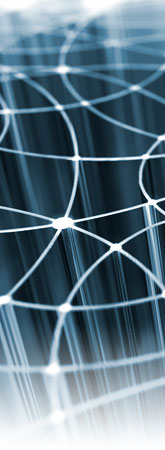DL.org Newsletter - Issue 1 2009 "A Common Journey to New Frontiers"
|
|
DL.org NewsletterIssue no. 1March 2009 |
Table of Contents
|
|
DL.org - Interoperability, Best Practices and Modelling Foundations
| In the near future all citizens anywhere, anytime will be able to use any internet–connected digital device to search all kinds of human knowledge. Via the Internet, they will be able to access knowledge in digital collections created by traditional libraries, museums, archives, universities, government agencies, specialised organisations, and even individuals around the world. Digital Libraries (DLs) will play a central role in achieving important transformations in our society: the way we deal with information to communicate, learn, work, conduct commerce, carry out research, deliver & use government services and practise & benefit from health care. Digital Libraries will make the vision for universally accessible collections of human knowledge a reality. In order for this to happen, considerable advances in Digital Library technologies and systems are needed. In particular, there is the need for Global Digital Library Infrastructures resulting from the federation of regional, national, international interoperable DL systems and digital repositories. However, interoperability is a complex process that needs to tackle multi-faceted aspects of DL systems. The EC-funded project, DL.org (December 2008-November 2010), is paving the way for the future interoperability of DL systems thus making feasible the implementation of Global Digital Library Infrastructures. DL.org aims to forge strong alliances with major stakeholders and the wider digital library community to harness the global expertise and knowledge that exists and maximize opportunities for the enhanced development of next-generation of Digital Library systems. Key DL.org goals focus on capitalising on key achievements made in the field to date, addressing the main, open research & technical issues, capturing best practices, promoting shared standards, and producing guidelines for the development of next-generation DLs systems. The DL community will benefit from knowledge exchange on key DL issues, as well as from eTraining courses designed to enable the next generation of DL professionals. The DELOS Digital Library Reference Model constitutes the basic conceptual framework within which DL.org is conducting its activities addressing the DL interoperability challenge in terms of Architecture, Content, Functionality, Policy, Quality and User perspectives. Additionally, best practices and technology patterns are being evaluated, with the aim of generating a Technology and Methodology Cookbook. To underpin these goals, DL.org is operating a number of Working and Liaison Groups composed of representatives from international DL initiatives and internationally renowned experts. |
Key expected outcomes
|
Expert views from the community on the value-add of DL.org
| “The launch of DL.org is both timely and much needed. This effort will provide an umbrella for existing and future digital library projects, which have become fragmented and, in many cases, duplicative in functionality. The community has grown significantly during the past ten years, with many experiments launched and lessons-learned. The current landscape is now in need of coordination to harness the global expertise that exists. Building from the Digital Library Reference Model work, DL.org brings together a team of researchers with a proven track record that is recognized worldwide for their expertise in the digital library community. They recognize that interoperable systems are the key to ensuring that digital libraries continue to grow in a way that meets the needs of users across the Web. Capturing best practices, providing a “living” Digital Library Reference Model and addressing the ongoing educational needs will fill crucial needs for global digital library community.” Geneva Henry from Rice University, USA
“The paradigm of the world-wide web has profoundly changed the way we conceive and implement the information architectures called 'Digital Libraries'. Today's platforms for handling knowledge and information are moving away from monolithic technological and organisational approaches: new and increasingly complex distributed platforms are built around key concepts like 'co-operation', 'federation' and 'virtual aggregation' of services and of resources. Today, no single institution or platform can reasonably claim to offer substantial value without co-operating, and uniform technical approaches can neither be expected nor strived for! Instead, such DL architectures fundamentally rely on interoperability which in turn has its foundations in standards, especially in settings such as Europeana which are built on multilateral interoperability of many independent partners and platforms. One of the first steps the Commission took for preparing Europeana was to create a working group on 'Interoperability of Digital Libraries'. The DELOS Reference Model was very useful for this group and I strongly believe that the same will be true for the work of DL.org for the DL community as a whole!” Prof. Dr. Stefan Gradmann, Humboldt-Universität zu Berlin/Berlin School of Library and Information Science, Germany
“The key challenge for digital libraries is intelligent, seamless integration of information search, use, and production into user activities and tasks. DLs must use a task-centric as opposed to an application-centric approach. DL.org provides a forum to shape these ideas, among others, and to systematise them in the Digital Library Reference Model for wide communication. Along the way, DL.org will foster consensus and mutual understanding among stakeholders, thus moving the field forward in both theory and practice. I am looking forward to participating in the common journey to new frontiers." Professor Dagobert Soergel, University of Maryland, USA
|
Contact
|
To find out more on how you can interact with DL.org and contribute to eNewsletters, please contact us at: info@dlorg.eu |
Subscribe to this newsletter.
![]()
DL.org (ICT No. 231551)
is funded by the European Commission under Framework Programme 7 (FP7) ICT Programme


.png)